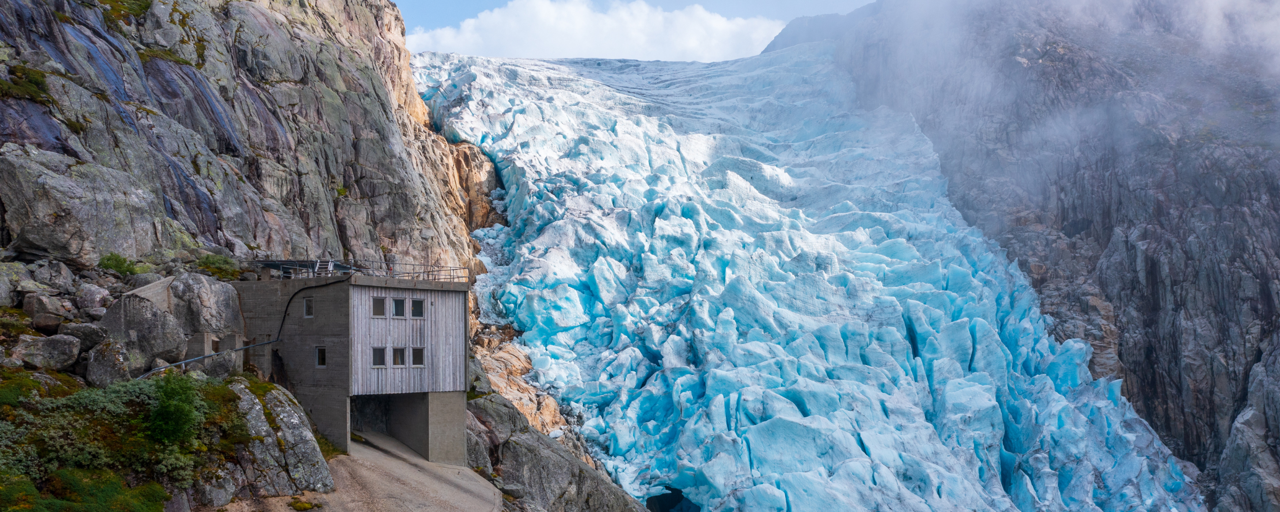
100 years for the zinc industry in Odda
When Norway’s Energy Minister Terje Aasland opened Boliden's new plant at Odda, it was both to celebrate the company's 100-year history in the city and its record investment in a new production plant. Keep reading to find out how Statkraft played an important role in securing the investment that ensures Boliden will continue to create jobs and opportunities in the community.
Located on a southern branch of Norway’s Hardangerfjord in Vestland county lies Odda, in an area that unites renewable power and Norway’s zinc industry, encapsulated by Boliden’s factory there.
Boliden has been a fixture in Odda for quite a while. In fact, it was just recently, in 2024, that the company celebrated its 100th anniversary in the city. That was a milestone of the present, but the following year featured one for the future: in 2025 Boliden inaugurated a brand-new production plant that doubled their zinc production.
That expansion is one of the largest investments in mainland Norway in recent times.
It has another significance, too, as it offers practical proof that the powerful cooperation between industry and renewable power production may be built on history, but it is also the shape of the future.
Curious to know more about Boliden at Odda? Watch the video:
Industry and power go hand in hand
Zinc is a metal used for galvanising. In short, that means that zinc acts as rust protection and is used on everything from cars to windmills to lampposts. Today, Boliden’s Odda plant supplies over 200,000 tons of zinc to Europe annually. Investments underway at time of writing would see that number reach 350,000.
It’s no coincidence that Odda is the place where Boliden has located its zinc production for over a century. Helene Seim, CEO of Boliden Odda, explains why:

“A lot of electricity” might even be an understatement, especially when you consider that Boliden Odda alone accounts for over one percent of Norway’s annual electricity consumption. The plans to expand the plant at Odda stand to increase power requirements by 700 GWh annually.
For Boliden’s business, the new production plant at Odda will come close to doubling its zinc production. When it comes to investments of this scale depending on such significant energy use, it’s natural that secure energy prices are vital in delivering predictability and reducing risk.
That’s where a long-term power purchase agreement with Statkraft comes in.

Boliden is a metals company with Nordic roots and a global presence
Its core competencies are prospecting, mining, smelters and metal recycling.
Boliden has approximately 6,000 employees and a turnover of SEK 50 billion. The company is listed on NASDAQ OMX Stockholm.
At Boliden Odda, the expansion makes it possible to almost double their zinc production.
The expansion of the plant constitutes one of the largest onshore investments in Norway in many years and increases the annual power requirement by 700 GWh. Boliden has invested around NOK 10 billion in the expansion.
Powering the production of Norwegian zinc
“Having a good, long-term agreement with Statkraft, which we have, was absolutely crucial for the investment in Odda to come into place”, says Seim.
As Birgitte Ringstad Vartdal, CEO of Statkraft, explains, long-term power purchase agreements are a win-win for both the power producer and the industry delivering security for the customer and income for the provider:
“In connection with their new investment, Boliden entered into a long-term power contract with us at Statkraft. This gives Boliden secure energy prices for 15 years and grants Statkraft secure income.
“It felt safe, and there was a future here.”
When a business or an industry commits locally, it sends a signal to the community. For Tomasgard, it was decisive in his decision to move home.
“I started as an apprentice at Boliden in 2015”, Tomasgard explains. “At the time, I had finished studying in Bergen and knew that there were job vacancies in Odda and opportunities in Boliden. That's why I came back home. It felt safe and there was a future here.”
Tomasgard highlights some of the common ripple effects that, for people locally, are just as important as stable electricity prices and competitiveness: security and predictable jobs for those who live here – and those who come back.


The power of power
Power has always been crucial for industrial development in Norway. Where there is industry, there is a need for power. And industry means jobs in large and small towns across our country.
Statkraft is a proud partner with industry, both here at home and abroad in Europe. Here you can read more about how we, together with the industry, bring out the power of power.